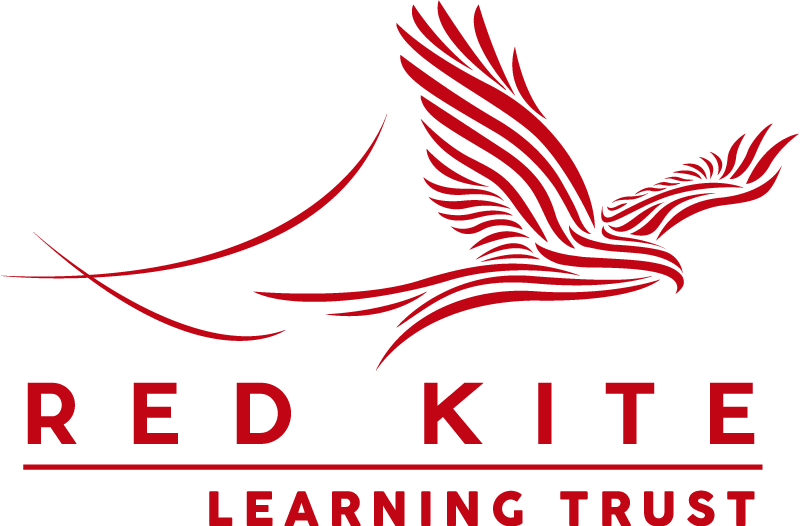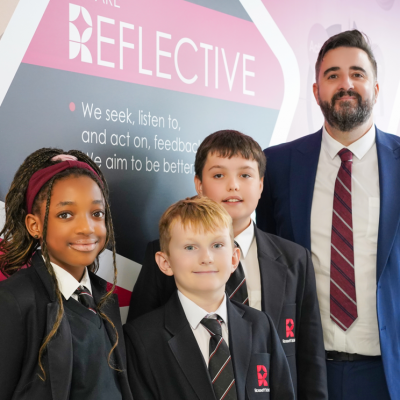CAREERS
Rossett School is committed to providing a high quality CEIAG programme for all students, taking in to account best practice and current statutory guidance.
Statutory Requirements:
- Statutory Guidance, April 2017, placed schools under a duty to ensure that all registered students at the school are provided with independent careers’ guidance from Year 8 to Year 13.
- The Government’s careers strategy, published 4 December 2017, sets out a long-term plan to build a careers system that will help young people and adults choose the career that is right for them.
- Statutory Guidance, January 2018, expanded to include the aim set out in the strategy to make sure that all young people in secondary schools receive a programme of advice and guidance that is stable, structured and delivered by individuals with the right skills and experience.
- To achieve this schools should use the Gatsby Charitable Foundation’s Benchmarks to develop and improve their careers provision.
- Co-ordinated external support and an appropriately skilled and experienced leader in school are important to help schools meet the benchmarks. The Careers & Enterprise Company (CEC) will provide external support to schools.
- From September 2018, every school must provide a Careers Leader to deliver the careers programme across all eight Gatsby Benchmarks.
Rossett’s Responsibilities:
- To work in partnership with local employers and other education training providers such as colleges, universities and apprenticeship providers to ensure that that young people can benefit from experiences related to the world of work to inform decisions about future education and training options.
- To make it clear to students that if they do not achieve Level 2 (GCSE grade 4) in maths or English by the end of Key Stage 4, they will be required to carry on studying these as no institution will receive public funding to teach them up to the age of 19. This is important because of the importance and powerful labour market value of a good GCSE in maths and English.
- To ensure that students understand that a wide range of career choices require good knowledge of maths and sciences, exposing students to a diverse selection of professionals from occupations which require STEM subjects, emphasising the opportunities available for those who choose science subjects at school. In particular, girls should be made aware of the risk of limiting their career options by dropping STEM subjects.
- To offer students the opportunity to develop entrepreneurial skills for self-employment so that they are aware that working for themselves is a viable option (necessary for many).
- To ensure that high attaining students are supported to make informed choices about whether to aim for university or an apprenticeship.
- To ensure that all students are aware of out of school opportunities that could help them with their career aspirations, such as the National Citizen Service and other voluntary and community activities.
Inspiring young people:
Careers’ guidance today is as much about inspiration and aspiration as it is about advice. Students will be motivated to consider broader and more ambitious future education and career options through sustained and varied contacts with employer networks, FE colleges, HE institutions, coaches and other high achieving individuals.
Rossett will:
- Create a learning environment which allows students to manage risk and develop their decision making, team building and problem-solving skills by tackling real life challenges.
- Have high expectations of all students. Facilitating access to a range of inspirational role models to help build resilience, goal setting, hard work and social confidence in our students encouraging them to overcome barriers to success. This approach will particularly benefit students from disadvantaged backgrounds who may get less support from family and social networks. Work experience plays an important role for post-16 students.
Building strong connections with employers:
- Currently there is a mismatch between the careers that young people want to pursue and the opportunities available. Choices made at school should be based on a clear view of the current labour market and how opportunities may change in the future.
- Evidence from the Education and Employers taskforce shows that access to a network of employers is associated with better outcomes for young people. Employers can pass on the benefits of their experience to both students and teachers, linking curriculum subjects to employment and providing an overview of different routes into careers.
- Rossett will engage fully with our local employer and professional community to ensure real-world connections with employers lie at the heart of the careers strategy. For example:
- Careers fairs and career networking events
- Access to open days at further and higher education institutions
- Access to creative on-line resources and labour market intelligence
- Help with basic career management skills like CV writing, CV building, job searches and job interviews
- Workplace visits and work experience placements
- Work ‘taster’ events such as games and competitions
- Speakers from the world of work in school
- Mentoring and coaching
- An insight into the labour market and the needs of employers
- A clear focus on the enterprise skills, experience and qualifications that employers want can support preparation for work. Increasing contact with employers will help to raise the profile of the importance of career choices but the school’s strategy for advice and guidance recognises that some students will need additional support before they are ready to make decisions about their next steps.
To help students access information Rossett will:
- Secure independent guidance, including information on the full range of education and training options, including apprenticeships and vocational pathways. This should help inform a student’s decision about their 16 – 19 study programmes and beyond. The school will ensure that students are informed about the options available in good time before decision points. This includes post-14, post-16 and post-18 options choices available from a variety of providers.
- Ensure that post-16 students are aware of the progression routes they can pursue after the study programme they are following is completed.
- Arrange visits to colleges, universities and workplaces to help our students make informed decisions to progress successfully at key transition points. Access to course information, open days and careers fairs will also inform the decision-making process.
- Encourage students to use websites which display information about opportunities as part of their careers advice and guidance provision.
- Ensure that students can find out more about the range of options available by giving other providers the opportunity to engage with students, on school premises, to inform them directly about what they offer. We will have the responsibility to act impartially and recognise that some students will be successful by pursuing education and training options beyond the school. The primary consideration when advising on options should be the best interests of the young person.
Securing support for choices and progression:
- Different students will need different support to make good choices based on their aspirations and the information they can access. Students’ individual needs will be considered.
- In addition to the National Careers Service website, which includes job market information and job profiles, there is a range of digital resources that can help students to self-assess their skills and research career options. These resources will be used to help, inspire and inform young people about the career and training pathways available to them.
Face-to-face careers’ guidance:
- Students can gain confidence and motivation from the opportunity to explore career ideas through individual, face-to-face discussions with a range of people. For example, careers advisors can help students to locate ambitious education and career options by identifying opportunities and assessing students’ abilities, interests and achievements. Other individuals who can inspire, provide advice and provide a nurturing influence include:
- Role models
- Alumni
- Mentors/coaches
- While most young people can benefit from face-to-face guidance, it is likely to be very useful for disadvantaged students who are at risk of disengaging or those who have special educational needs, learning difficulties or disabilities.
Duty to participate in education or training after 16
- Rossett will ensure that young people are clear about the duty to continue education or training beyond the age of 16 and what it means for them. Young people must be clear that they are not required to stay in school and that they can choose how to participate, such as through:
- Full time study in school, college or training provider
- An apprenticeship, traineeship or supported internship
- Full time work or volunteering (20 hours or more) combined with part time accredited study.
Working with Local Authorities:
- Rossett will work with our local authority to identify those at risk of not participating post-16. Local authorities have arrangements in place to ensure that 16 and 17 year olds have agreed post-16 plans and have received an offer of a suitable place in post-16 education or training under the ‘September Guarantee’, and that they are assisted to take up a place.
- Schools should also work in partnership with local authorities to ensure they know what support services are available, and how they can refer young people for this support.
Information sharing:
- Rossett will provide relevant information about all students to local authority services. This includes basic information such as name, address, date of birth and other information which would help support the young person to participate in education or training and to track their progress. For example, information identifying those at risk of becoming not in education, employment or training (NEET) post-16, young people’s post-16 and post-18 plans and the offers they receive of places in post-16 or higher education.
- If a student aged over 16 or a parent of a student under 16 has instructed the school not to share information of this kind with the local authority the school will ensure that they do not provide this additional information.
Rossett will target support for vulnerable and disadvantaged young people by:
- Working with the local authority to identify people who need targeted support or who are at risk of not participating post-16.
- Students in alternative provision (AP) are a particular group of students who may require targeted support in order to achieve their full potential.
- Considering the use of student premium funding to provide carefully targeted advice and experiences related to work for all their disadvantaged students.
- Ensuring that young people understand that the 16 – 19 Bursary Fund has been set up to support those in financial hardship.
- Rossett will also work with their local authority and local post-16 education or training providers to share data on students, such as care leavers or those on Free School Meals, who are likely to need support with participation costs.
Ensuring adequate support for students with special education needs or disabilities:
- Most young people with SEN and disabilities are capable of sustained paid employment, with preparation and support. App professionals working with these young people should share that presumption to help young people develop the skills, experience and to achieve the qualifications they need to succeed in their careers.
- Independent, impartial advice for young people with SEN and disabilities will include the full range of opportunities on offer, signposting them onto study programmes that will support their transition in to paid employment. This included supported internships for young people with Education, health and Care (EHC) plans, traineeships, apprenticeships and qualifications that will enable further study in higher education, where appropriate.
- For students with EHC plans, Personal Budgets may be used to help children and young people with SEND to access activities that promote greater independence and learn important life skills.
- For teenagers, preparation for adult life will be an explicit element of their planning and support. Where a student has an EHC plan or a ‘Statement’, all reviews of that Plan or Statement from Year 9 at the latest, and onwards must include a focus on preparing for adulthood, including employment, independent living and participation in society.
- Rossett will make use of the local offer published by the local authority which sets out details of SEND provisions in our area – including the full range of post-16 options.
- Rossett will co-operate with the local authority, who have a role to play in the provision of SEN services and EHC plans. Statutory guidance on the SEND duties is detailed in the 0–25 Special Educational Needs Code of Practice.
Evaluation and monitoring of advice and guidance:
In developing our careers provision at Rossett School there are three aspects of quality assurance that we will take in to consideration:
- The quality of our careers programme – the Government recommends that all schools should work towards the national quality award for careers education, information, advice and guidance as an effective means of carrying out a self-review and external evaluation of the school’s programme – this is the Quality in Careers Standard.
- The quality of independent careers providers. The Matrix Standard is the recognised national quality standard for Information, Advice & Guidance (IAG) – we will work with an accredited organisation.
- The quality of careers professionals working with the school. The main qualifications for careers professionals are the Qualification in Career Guidance (QCG) and the Level 6 Diploma in Career Guidance and Development.
- Rossett will monitor and evaluate the activity taking place, whether that involves school staff, volunteers or external providers. This may include observation, student voice, and surveys and can be done formally and informally. Feedback from parents and employers engaged in activities can also be useful.
- Feedback will be used to evaluate different activities and delivery options to inform future provision.
- Ofsted inspectors will take account of the quality of independent careers guidance and of students’ destinations in making their judgement on the leadership and management of the school and a separate judgement on the Sixth Form.
Destination measures:
- Rossett will use destination measures data to monitor the success of the programme in supporting our students to take up education or training which offers good long-term prospects. These measures also allow schools to be monitored locally as well as feeding into judgements by Ofsted.
- Rossett will ensure that the information collected is as complete as possible and ask the local authority to share information on young people’s progress with them.
The CEIAG Programme at Rossett
The CEIAG programme at Rossett is an integral part of the School Development Plan with a focus on providing students with the means to bring about positive change in their lives through the choices that they make. The programme is shaped by taking in to account current good practice guidelines as outlined in the statutory requirements and the Gatsby Foundation Benchmarks.
Careers education provides a way of developing knowledge, understanding and experience of opportunities in education, training and employment. It aims to develop skills needed to make improved decisions and it is a way of helping students to apply knowledge and understanding and skills to their own circumstances. Best practice provision integrates careers guidance with a well-planned programme of careers education.
CEIAG Programme aims:
- To encourage all students to recognise and value their own skills and abilities and to appreciate their relationships with, and responsibilities towards other people, the community and environment.
- To develop the skills which will help students make informed and realistic choices for their future.
- To enable students and parents to be aware of the alternatives and opportunities open to them at different stages of their life and to raise their aspirations.
- To develop the skills, including communication and confidence that will be needed in new roles and situations.
- To encourage understanding and experience of the world of work through WRL and enterprise activities.
- To promote equality of opportunity and respect of race, religion, gender, disability and combat stereotyping.
- To develop students’ capabilities and to understand their own needs and abilities.
- To encourage students to investigate careers opportunities both locally and nationally and through direct experience of the world of work, work related learning and enterprise activities.
Student Entitlement:
Students can expect:
- To learn about key people who can help with education, careers and any other personal, health or financial problems.
- To know how to access information which is up-to-date, well-informed
- To be provided with impartial careers advice and guidance which raises aspirations, promotes equality of opportunity, celebrates diversity and challenges stereotypes.
- To get information on the guarantee of an offer of further learning at key points.
- To understand and be aware of financial help they can access to stay in education; such as student bursaries.
- To know where to get help after 19 years of age (24 years if they have a disability).
Help will:
- Be quick and easily available
- Respect individual needs
- Be confidential
- Provide confidence in next steps planning
- Be impartial, considering all relevant options
- Signpost the National Careers Service and other relevant websites.
Parent/Carer Entitlement:
Parents/carers can:
- Access information which is unbiased, up to date and covers all the options available
- Discuss careers issues with the school careers advisor at parents’ evenings and be involved in the guidance process.
- Attend student careers guidance meetings.
Outline of CEIAG Activities Delivered at Rossett
Careers’ Education:
The careers’ education programme is currently delivered through the PSHE and Citizenship programme and the Tutor programme:
Key Personnel:
The CEIAG programme is co-ordinated by the Associate Assistant Headteacher who has the overview and line manages the PSHE & Citizenship Co-ordinator and the external provider for IAG – Shine Aspire Igen. In order to inform delivery there are regular links and reviews with identified staff, who ensure the individual student needs are met for whom they have responsibility. This includes:
- The Head and Deputy Head of Sixth Form
- Directors of Learning / Student Support Officers (KS3 and KS4)
- SENDCo
- Form Tutors
- Careers’ admin support
Working in Partnership:
We work in partnership with other organisations in order to support and provide advice to students. These include:
- Local FE colleges
- Apprenticeship providers
- Employers
- NYBEP
- CEC
- Voluntary Sector organisations
|
Year 7 |
Careers Provision |
Programme |
|
PSHE lessons
PSHE off-timetable days x2 |
|
Year 8 |
Careers Provision |
Programme |
|
PSHE lessons External company Tutor programme
PSHE off-timetable day |
|
Year 9 |
Careers Provision |
Programme |
|
PSHE lessons
External visit |
|
Year 10 |
Careers Provision |
Programme |
|
PSHE lessons External visit
External visit
PSHE off-timetable day |
|
Year 11 |
Careers Provision |
Programme |
|
Tutor programme PSHE lessons
Off-timetable day
External visit
August |
|
Year 12 |
Careers Provision |
Programme |
|
PSHE programme
External visit
Off-timetable weeks x2
August |
|
Year 13 |
Careers Provision |
Programme |
|
PSHE programme
External Visit August |
|
Whole School |
Careers Provision |
|




















